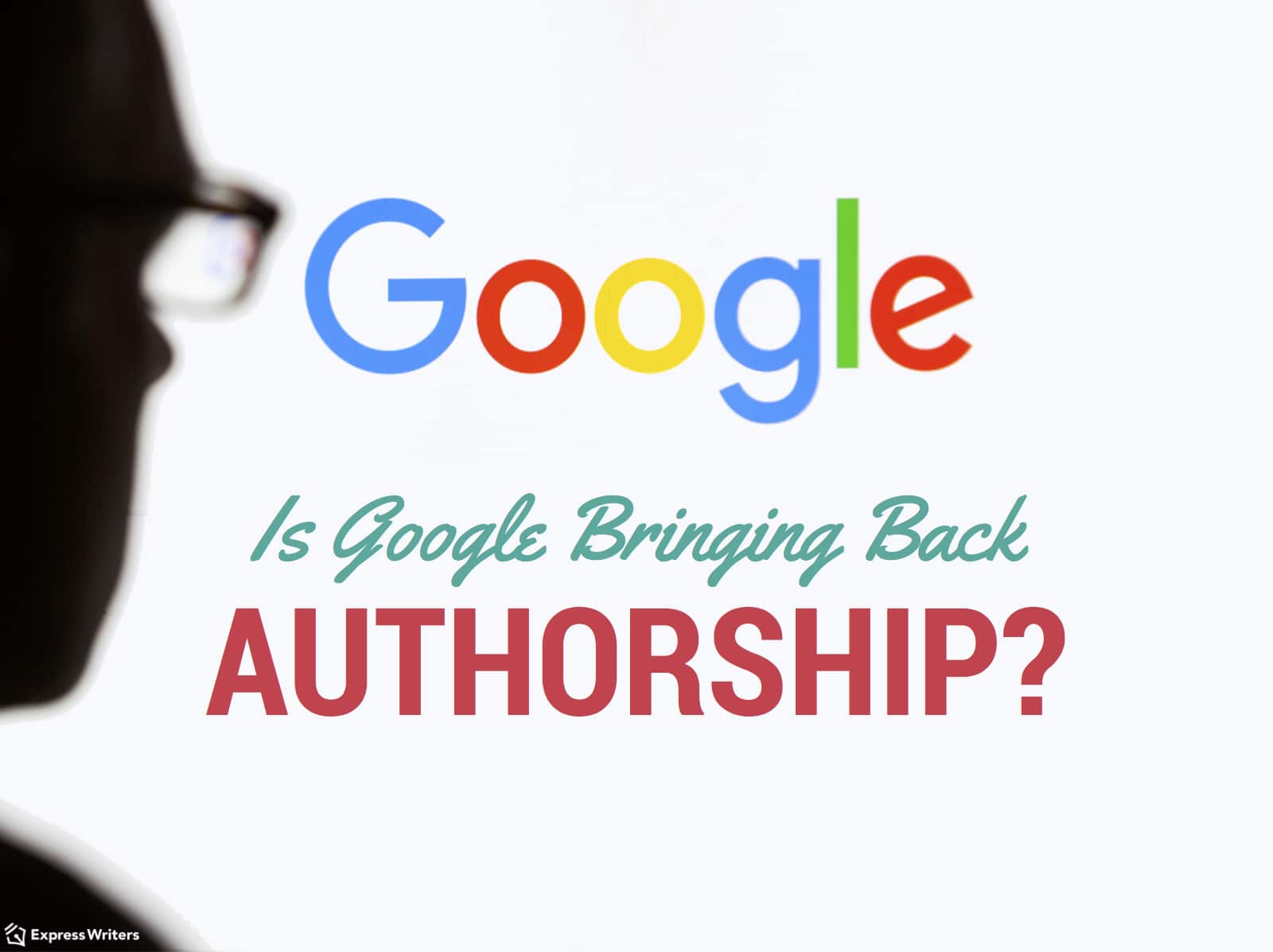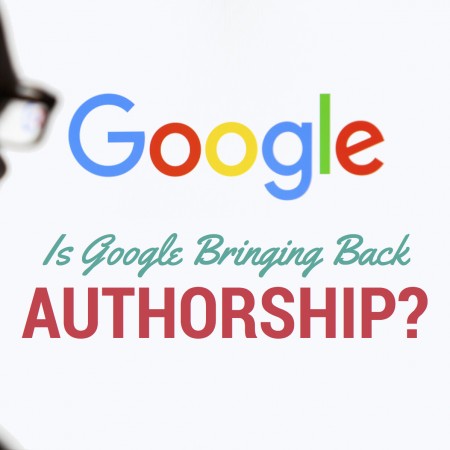I remember those days… the good ol’ days of G+ Authorship.
Your picture would show up next to your website/blog, if you set it up correctly, like mine did:
A Little Google Authorship Background

Introduced in 2011, Google Authorship was a service that allowed for the connection of multiple pieces of content with a single author. The idea behind it was to provide a sort of scoring system by which authors could be ranked based on their authority and trust signals. This, in turn, would allow Google users to find content that had been written by the same writer and would help that writer establish legitimacy and credibility.
Although it was introduced as a shining star that would allow writers to stake claim to their own content, it was a short-lived affair. After an extensive series of changes, Google pulled Authorship support from its services in August 2014,, although it threw audiences a loop by telling them to keep Authorship source code alive.
That left many SEOs wondering if Authorship was coming back and, if so, when?
To answer that question, let’s take a look back at the past.
Why Google Authorship Died
When Google pulled support for Authorship, webmaster John Mueller stated that there were two main reasons that Authorship was chopped.
Those reasons were as follows:
- Low adoption rates
To put this simply, people simply weren’t using Authorship. Google caught on to this the first year Authorship was launched and, by 2012, Google had made attempts at auto-attribution that would allow content to be attributed to its rightful author even if that author didn’t participate in the Authorship platform. Immediately thereafter, however, it became clear that mis-attribution had become a problem. It was such a problem, in fact, that the service attributed Truman Capote (then dead for 28 years) as the author of a New York Times article. Whoops!
- Minimal value to users
In its original inception, Google Authorship didn’t perform and the Google team noticed that the service was producing little difference in click behavior on Authorship and non-Authorship pages. This, combined with the service’s mis-attribution problems, were enough to bury it in a shallow grave in 2014.
Is Google Authorship Coming Back?
Despite its original failings, Google seemed to have a soft spot for Authorship and the team provoked much curiosity when they killed Authorship but told audiences to leave the authorship source code live.
Some people, when asked if Google Authorship is coming back, would argue that Authorship never actually went away. Sure, the author images disappeared from the SERP’s but Google has never stopped their mission to interconnect information.
Since Google seems increasingly hesitant to confirm updates, however, it seems unlikely that they’re going to say anything definitive about Google Authorship until it’s here, or not.
Conclusion
The one thing we can say is that Google Authorship seemed like a promising service. Although it ran into its fair share of trouble in the beginning, it’s not impossible to imagine that the Google search team may choose to resuscitate the platform and use a renewed version of Authorship to do everything from determine author rank to displaying in depth articles in SERPs.
Until we receive further clarification from Google, though, all we can do is wait and wonder.

